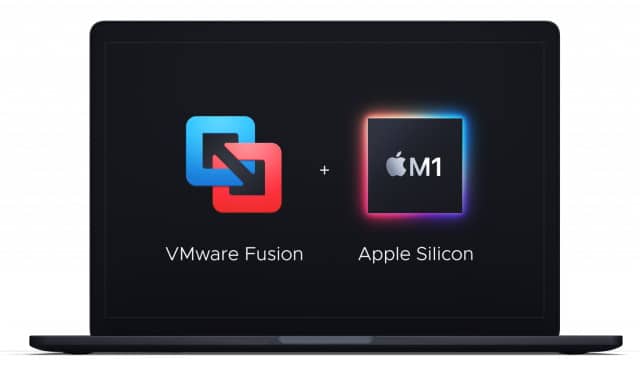VMware has no plans to support Windows 10 on M1 Macs -- Windows is second priority behind Linux

The release of M1-powered systems was warmly welcomed by the Mac community, thanks largely to the huge performance boost Apple silicon brings. For macOS purists, the move to M1 chips makes a great deal of sense, but for anyone used to running other operating system on their Macs, there were questions.
Running Windows 10 on M1 systems is possible thanks to the latest version of Parallels for Mac, but this is far from being the only virtualization software available -- people have been asking for some time what to expect from VMware Fusion. Now the company has revealed details of what to come; and while it's great news for Linux fans, it's not so great for Windows users.
See also:
- Surprisingly unproblematic KB5001391 update brings speed boost to Windows 10
- Microsoft is dramatically improving Bluetooth audio in Windows 10
- Winget: Microsoft updates Windows 10's Linux-style package manager to enable software removal
VMware product line manager Michael Roy has penned a lengthy blog post in which he reveals that "running x86 operating systems on Apple silicon is not something we are planning to deliver with this project". One of the reasons he gives for this is his personal belief that "this platform will be one to more rapidly introduce new experiences at the expense of cutting away from the past. Where we're headed is anyone's guess, but I am confident the direction we're moving isn't backwards".
But this is not the reason for VMware taking the position that " Windows is second priority behind Linux". Writing about the licensing terms for Windows on ARM, Roy says:
Of course, users are expecting to run Windows in a virtual machine, much like we’ve been used to for many years now. With Windows on ARM however, this presents a unique situation, particularly as it relates to Licensing.
The Insider Preview program says: "To install Windows 10 Insider Preview Builds, you must be running a licensed version of Windows 10 on your device." And as far as we are aware, there is no way to buy a Windows 10 ARM license for a Mac with Apple silicon. There have been plenty of discussions on the topic from users and the media, and from the Insider Download Page, it reads:
With Windows 10 on ARM Insider Preview builds, you can create 64-bit ARM (ARM64) VMs in Hyper-V on Windows 10 ARM-based PCs. Creating ARM64 VMs is not supported on x64 hardware.
ARM64 VMs are only supported on devices that meet the pre-requisites:
- Windows 10 ARM-based PCs with a Microsoft SQ1, Microsoft SQ2, Qualcomm Snapdragon 8cx, or Qualcomm Snapdragon 850 processor
- Windows 10 Pro or Enterprise, build 19559 or newer
- Hyper-V enabled (instructions)
You can see it doesn’t say anything about Apple silicon. We have reached out to Microsoft for comment and clarification on the matter.
For the time being, our work has been focused on Linux guest operating systems, and we’re confident that if Microsoft offers Windows on Arm licenses more broadly, we’ll be ready to officially support it.
The news for Linux users is great, however. Roy show his M1 MacBook Air running Fedora 34 and Ubuntu 21.04 simultaneously while hardly breaking a sweat. And it's a situation that is only going to get better; VMware says that it is "laser focused on making Arm Linux VMs on Apple silicon a delight to use".
